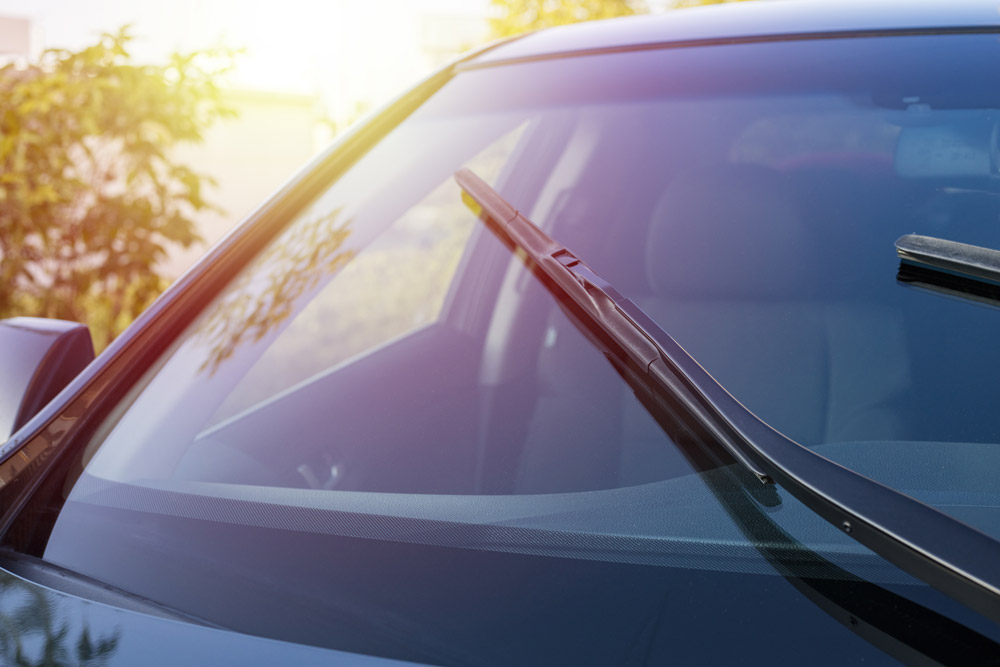
It’s inevitable that at some point, you’ll need to schedule more than just routine maintenance for your vehicle. Hopefully, though, you won’t encounter all of these issues at once!
Prevention Is Worth a Pound of Cure
As you know, it’s usually cheaper to prevent a problem with your car than it is to fix it. Some of these common car repairs can actually help prevent bigger problems down the road (pun intended!), so be sure you’re either performing them yourself or scheduling Orem car repair appointments with Master Muffler for help.
Replacing Windshield Wipers
An easy, but common, car repair task you can do yourself is replacing your windshield wipers. Every six months, or annually depending on use, you should switch out the old ones for a fresh, new pair. Don’t forget about your rear wiper, too! You can refer to your owner’s manual to help you purchase the right size wipers, and with a simple pinch, you can remove the old wipers and click on the new ones.
Oil Changes
Our Orem car repair team at Master Muffler recommends you change your vehicle’s oil every 3,000 miles or every six months. This can keep your engine running smoothly, and get that pesky “Check Engine” light to turn off in time for your annual registration inspection.
Changing the Oil filter
To help your motor oil and engine work well together, you should replace your oil filter every 6,000 miles or annually, whichever comes first. You want to optimize how much oil is making it to your engine, and a clogged filter can stand in the way.
Changing the Air Filter
Since your engine needs air to perform proper fuel combustion, the oil filter should always be in good shape. Every 12,000 to 15,000 miles, or every three years, you should have the air filter replaced. It’s not too hard to get to, so this may be a task you complete yourself, or you can have it done at every other scheduled oil change with your local mechanic.
Replacing the Fuel Filter
Newer cars may not require new fuel filters for up to 60,000 miles. Older vehicles, however, can benefit from regular fuel filter replacements every 30,000 at least. This comes out to about 2.5 years, depending on how much you drive. A diesel engine fuel filter can last up to 25,000 miles before needing to be switched out.
Replacing the Battery
If you’d like your car to start every time you turn the key or push the ignition button, change your car battery every three years, or at the first signs of failure. As long as your vehicle is turned off, removing an old battery and installing a new one doesn’t present much risk. Car batteries are quite heavy though (about 40 pounds!), so don’t hesitate to have a professional install a new one for you.
Replacing Hybrid Batteries
Batteries in hybrid electric vehicles should last up to 100,000 miles, or eight years (whichever comes first). As always, it varies on the type of driving you do, as well as the vehicle year, make, and model. The cost to replace a hybrid battery can range from $1,000 to $6,000 because you’re not just paying for parts, but for labor as well.
Changing Tires
We’re not talking about swapping out a flat tire for a new one; in this case, we’re talking about how often you should replace all of your tires. According to the National Highway Safety Administration (NHTSA), tires should be replaced every six years. YOu can easily check on the condition of your tires simply by looking at them- do they have cracks or worn treads? Use a PSI reader to check inflation; if your tires can’t hold air and/or show signs of extreme wear, it’s time to invest in a new set.
Recharging Air Conditioning
Unless there’s a problem with your car’s air conditioning, there’s no timeline for recharging it. If you notice that the air isn’t blowing cold, it’s time to have the AC system looked at. If a recharge doesn’t help, there could be a leak in the line that needs to be addressed.
Replacing a Blown Fuse
Did you know your car has a fuse box (or more than one) like your house? Sometimes if an electrical function isn’t working, you just have a blown fuse that needs replacing. Your owner’s manual can tell you where to find the fuse box(es) on your vehicle, and how to determine which one is out. If you don’t have a fuse tester or fuse pullers, this task might be best left to the car repair crew at Master Muffler.
If there are things on this list you don’t feel confident doing yourself, get in touch with the Orem car repair experts at Master Muffler. You can request an appointment online, or give us a call at 801-228-0045.
Related Posts
Key Takeaways On average, passenger vehicle tires last 40,000 to 60,000 miles, depending on type, driving habits, and maintenance. Replace tires when tread depth reaches 2/32”, if damaged, or older than 10 years. Regular rotation, alignment, and proper inflation extend tire life. Aggressive driving, poor roads, and harsh weather shorten tire lifespan. Take advantage [...]
When you think about car maintenance, you probably focus on oil changes, tire rotations, and maybe even brake pad replacement. But what about your brake fluid? If you’ve ever wondered, “What does brake fluid do?” or “Why is brake fluid important?”, you’re not alone. Brake fluid might not be the most talked-about part of [...]
Is that high-pitched squeal from your brakes driving you—and everyone else—crazy? Don’t ignore it. Squeaky brakes aren’t just annoying, they’re your car’s way of saying something needs attention. Whether you're cruising through Salt Lake City or winding up Idaho’s mountain passes, here’s what’s likely going on, how you can fix it, and when it [...]





